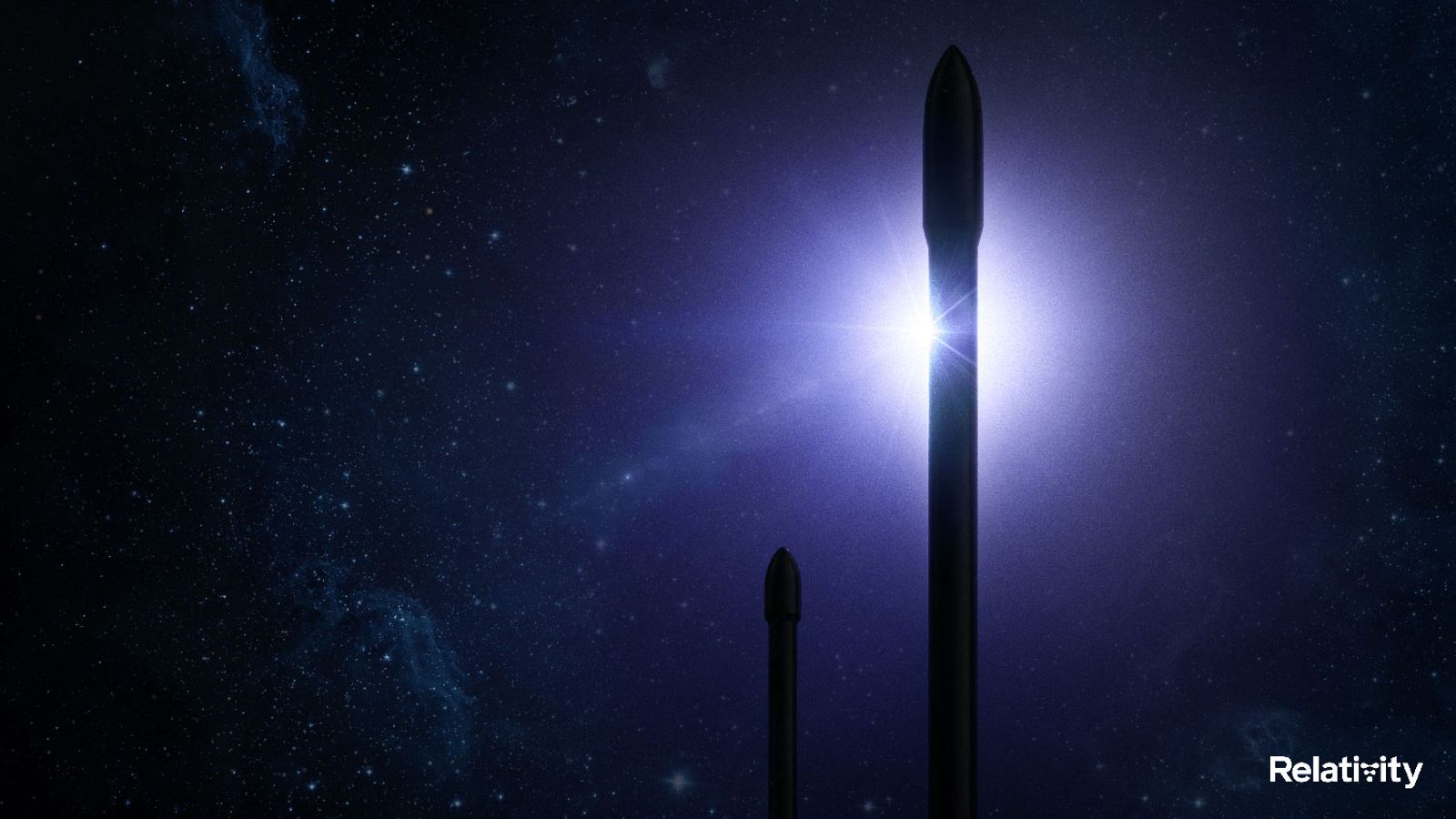One of the world’s leading space industry companies is close to landing a new funding injection that will see its valuation soar to well over £2bn.
Sky News has learnt that Relativity Space, which uses giant 3-D printing machines to build orbital rockets, is in advanced talks with investors about raising roughly $600m (£424m).
Sources in the US technology industry said the funding round could be concluded as soon as this week, although they cautioned that the timing of any announcement was uncertain.
Relativity Space is fast-becoming one of the leading space ‘unicorns’ as investors rush to back companies focused on commercialising travel beyond Earth.
The company says it is “well on its way to launching the world’s first entirely 3D printed rocket to orbit, only the first step in a long-term vision to upgrade humanity’s industrial base on Earth and build one on Mars”.
In that respect, it forms part of an increasingly vibrant – and valuable – industry in which the likes of Tesla’s Elon Musk, the Virgin Group tycoon Sir Richard Branson and Amazon’s Jeff Bezos have become key global figures.
Its latest funding round comes just six months after it raised $500m from a large syndicate of new and existing investors, including Fidelity Management & Research Company (FMR), and Tiger Global Management, the hedge fund which has become one of the world’s most prolific tech funders.
That deal was reported to value the company at $2.3bn (£1.6bn).
FMR is thought to be leading the new, Series E, round.
One source said it was likely to value Relativity Space at in the region of $4bn (£2.8bn), although that figure could not be confirmed on Tuesday.
Relativity Space was founded in 2015 by Tim Ellis, its chief executive, and Jordan Noone.
The latest capital injection is expected to take the total sum raised by the company to over $1bn since its inception.
Among Relativity Space’s other shareholders are General Catalyst, ICONIQ Capital and the British-based institutional investor Baillie Gifford.
Announcing its Series D round in November, the company said the new funding would allow it to accelerate its shift towards “software-defined manufacturing”.
“Aerospace still relies on the same fundamental toolset it did 60 years ago when rockets were first launched to the Moon and global aviation was in full swing: giant factories full of fixed tooling, with complex supply chains and hundreds of thousands to millions of individual parts assembled one at a time by hand, using hundreds of diverse manufacturing processes,” Mr Ellis said at the time.
“At its heart, 3D printing is an automation technology, one that transforms physical complexity into software by stitching many components together.
“The compounding rate of improvement and iteration possible through our disruptive approach will be unlike anything seen before.
“If we are going to live on Mars, it is inevitable that this factory of the future must exist to build humanity’s industrial base once there.”
Based in Long Beach, California, Relativity Space said it had a workforce of more than 230 people.
The fundraising is notable because it is being undertaken privately rather than pursuing a public listing through a merger with a special purpose acquisition company (SPAC), as many technology companies have chosen to do during the last 12 months.
Volatility in the performance of many SPACs has resulted in a slowdown in such deals, and there was no suggestion on Tuesday that Relativity Space had explored a SPAC deal.
Relativity Space declined to comment, while FMR did not respond to a message on Tuesday.






















